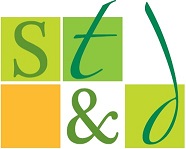by Gale M. Sinatra & Barbara K. Hofer
Science doubt, resistance, and denial are serious concerns not just for scientists and educators. Text and discourse researchers have a special role to play in mitigating the impact of the current science infodemic. The Internet has democratized knowledge creation and with that shift, articles about science are more likely to be accessed on social media than from peer-reviewed journals, which typically lie behind a paywall, unavailable to most individuals without a costly fee. With this shift, science mis- and dis-information is now shared on social media faster than the purveyors can be de-platformed. Science mistrust, doubt, resistance, and denial are widespread and, as we have seen with COVID-19 and climate denial, this can have deadly results. What can text and discourse researchers do to curb the rising tide of science mistrust and the scourge of mis- and disinformation? What is the responsibility of text and discourse researchers to shore up the crumbling walls of science literacy among their students and the general public?
We have identified key constructs that make individuals susceptible to science doubt, resistance, and denial in our book Science Denial: Why It Happens and What to Do About It. We discuss psychological explanations such as cognitive biases, motivated reasoning, social identity, limitations in epistemic cognition, and emotions. We also provide tips for individuals, educators, scientists, science communicators, and policy makers. Here we share a few suggestions for text and discourse researchers to address the misinformation infodemic and the growing surge of science mistrust and denial:
1. Apply your expertise as text and discourse researchers to the problems of mis- and disinformation about science. Many of you have already been on the front lines of the war on science information literacy. Notably scholars such as Ivar Bråten, Doug Lombardi, Panayiota Kendeau, David Rapp, Greg Trevors (to name just a few) have published in the pages of Discourse Processes on confronting fake news, sourcing, and teaching and learning science through text and discourse. Many of you have uniquely relevant expertise in the key constructs we identify. Science mis- and disinformation are primarily spread and consumed through text and discourse; more of us need to leverage our unique backgrounds, expertise, and skillsets and contribute to addressing this problem.
2. Move beyond basic research to application – as many of you already do, to address the science infodemic. So many text and discourse researchers informed our thinking in Science Denial. Basic research is at the heart of science, and we deeply value the work we drew on for this book. But just as we can’t wait until we are 100% sure about every aspect of climate change before we act to reduce emissions, text and discourse researchers need to develop interventions based on their own research. There are many notable examples of researchers who publish in these pages who do exactly that, and we thank you. We are calling for more interventions, large and small, funded and unfunded, to test ways to mitigate science mistrust, doubt, denial, and resistance based on your research. The need is urgent.
3. Promote and share your own research outside of journals. Moving beyond journal articles was a leap for us, and Science Denial is our attempt to reach a broader audience. Text and discourse researchers have much to contribute to mitigating the science infodemic, and we encourage you to get your work out there more broadly. Based on our book, we were contacted by a journalist who asked how to vet science articles for veracity, and we have done interviews with several dozen radio shows and podcasts about the topic. This kind of influence is key. Get your work out there in the open access space. Our article about the book in The Conversation has over 53K reads at the time of this publication. A second article on the science denial themes in the film, Don’t Look Up, garnered over 300K reads, with more than half the readership outside the US. Get your work into the hands of those who can use it to fight the science infodemic whether by sharing findings with local school districts, or libraries, or sharing digital copies through your social media and professional networks.
4. Connect to others who are in applied fields such as journalism, science education, museum education, and science communication. Gale recently shared some of our science communication strategies with health professionals in the USC medical school who are promoting vaccinations. Whenever we talk with those who are on the front lines of science education and communication, we are struck by how much they appreciate these efforts. More striking is how little they know about basic text and discourse findings that are directly relevant to their work. Refutations? What are those, they ask. Message framing? Coherence? So many concepts we take for granted are new to those outside our field. Share your work directly with those who can apply it immediately to their next interaction with the public.
5. Bring these ideas into your teaching. Every semester, we encounter and interact with new and old beliefs, many of them not supported by scientific findings. Students, just like us, are desperately searching for meaning in an uncertain world. So many of us value epistemology and the multiple ways of knowing. Scientific mis- and disinformation are ‘sticky’ because they exploit the space of uncertainty where science is on the leading edge of discovery. Equip your students with the tools to have productive discussions with peers, friends, or family about important topics which may be sensitive. Discourse scholars have insights to guide such discussions in a productive manner that can go a long way to bridging the science literacy divide.
Authors Note: We’d like to thank Dr. Neil Jacobson for providing feedback and ideas that contributed to this blog.

0 Comments